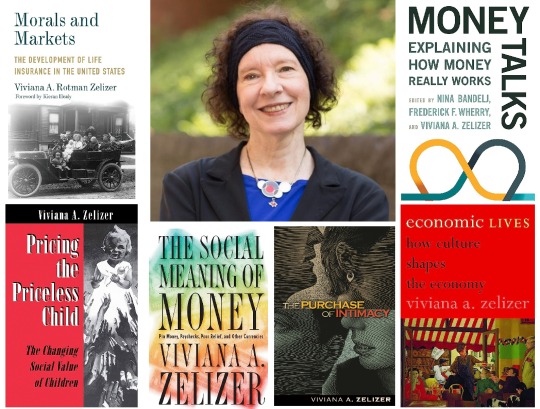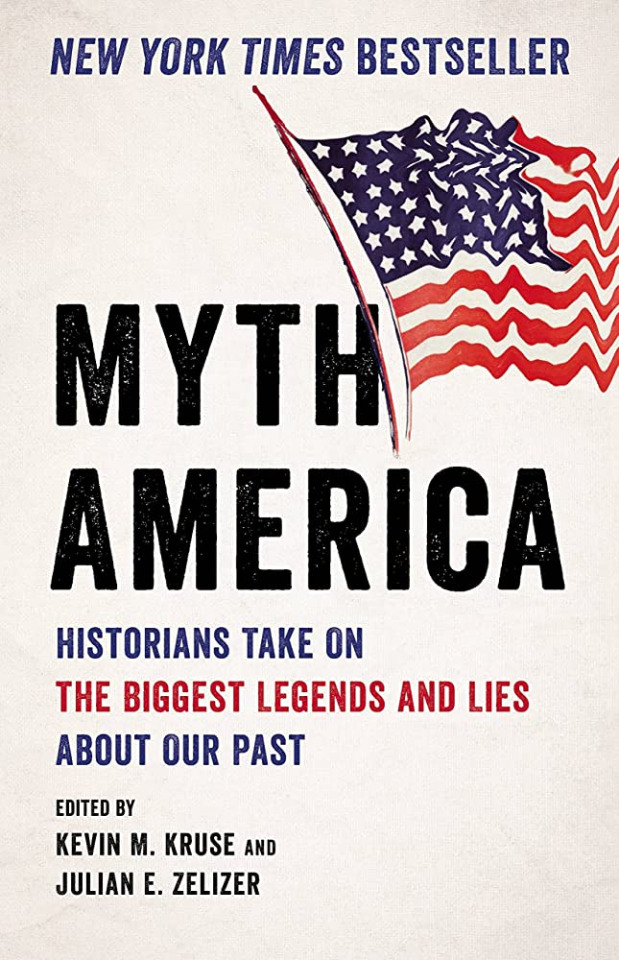#zeliz
Text
In some ways, this is just the most recent expression of a fear that has been part of the American landscape since the early 20th century—roughly the moment, as the sociologist Viviana Zelizer has argued, when children came to be viewed as “economically useless but emotionally priceless.” As in previous moral panics, messages about the threat of child sex trafficking are spread by means of friendly chitchat, flyers in the windows of diners, and coverage on local TV news.
But the present panic is different in one important respect: It is sustained by the social web. On Facebook and Instagram, friends and neighbors share unsettling statistics and dire images in formats designed for online communities that reward displays of concern. Because today’s messaging about child sex trafficking is so decentralized and fluid, it is impervious to gatekeepers who would knock down its most outlandish claims. The phenomenon suggests the possibility of a new law of social-media physics: A panic in motion can stay in motion.
— The Great (Fake) Child-Sex-Trafficking Epidemic
#kaitlyn tiffany#the great (fake) child-sex-trafficking epidemic#history#sociology#psychology#conspiracy theories#moral panic#human trafficking#family#children#internet#social media#usa#viviana zelizer
1 note
·
View note
Text

"Transformative. Pioneering. Iconoclastic" -- The American Sociological Association solutes an eminent scholar and economic sociologist Viviana Zelizer with two highest awards. Read here about her landmark contribution.
15 notes
·
View notes
Text
« Antisemitism is fundamentally antithetical to the progressive movement. Now is the time for those on the left to be crystal clear that social hatred, discrimination and violence toward Jews will not be tolerated within their own ranks. Should those on the left allow these ideas to fester, they will cause enormous long-term damage to the progressive agenda that so many have fought so hard to promote for decades. As the Rabbi Abraham Joshua Heschel once wrote, “Some are guilty, but all are responsible.” »
— Princeton Prof. Julian Zelizer writing at CNN.
It's disturbing how some people who claim to be progressive have been espousing antisemitism. Perhaps they are low information types who feel obliged to hop on any bandwagon driven by fringe elements on social media without really examining it.
It is not at all difficult to support the rights of the Palestinian people without acting like a participant in the 2017 "Unite the Right" rally in Charlottesville.
I have long supported a two-state solution to accommodate Israelis and Palestinians. It is extremists on both sides which oppose it. Both Hamas and Binyamin "Bibi" Netanyahu are vehemently opposed to the Oslo Agreement which began the peace process; Bibi and Hamas are frenemies in their opposition to Oslo. So those demonstrators in Western countries proclaiming their love specifically for Hamas terrorists are indirectly on the same side as the most far right government in Israeli history.
Unfortunately it is not at all an exaggeration to say that some of the people who purport to be pro-Palestine are talking and acting like Nazis and Klansmen.
Cornell University student arrested for making violent antisemitic threats: police
Patrick Dai, 21, a junior from Pittsford, New York, was arrested on a federal criminal complaint charging him with posting threats to kill or injure another using interstate communications, according to United States Attorney Carla B. Freedman.
[ ... ]
In another post, Dai allegedly threatened to “stab” and “slit the throat” of any Jewish males he sees on campus, “to rape and throw off a cliff” any Jewish females, to “behead any Jewish babies” and to “bring an assault rifle to campus and shoot” Jewish people.
For people outside the US: Cornell is a prestigious Ivy League university.
For historical reasons, Germany is particularly concerned about antisemitism. Robert Habeck is the leader of one of the three parties in Germany's center-left ruling coalition. He is Vice Chancellor and Minister of Economics. Dr. Habeck felt concerned enough about the rise in antisemitism to make a video about it and print the text in the original German as well as English, Arabic, and Hebrew.
The talk was widely praised in Germany.
There is apparently a DOS attack aimed at the Economics Ministry by foreign elements trying to suppress the minister's comments. Fortunately the video is also available at YouTube with English/Arabic/Hebrew subtitles.
youtube
The Vice Chancellor condemns antisemitism regardless of the source – far right, far left, Islamist, and Putin inspired.
What is true in Germany should also be true in its NATO allies, including the United States.
Unfortunately Jewish students at US campuses are being threatened and targeted with hate speech.
youtube
Any person targeting or making threats against Jewish Americans because of events in the Middle East needs to be prosecuted by the feds or local law enforcement under applicable laws.
When people cross the red line from criticizing the Israeli government to scapegoating and harassing Jews, they have forfeited the right to call themselves progressives; such people should be shunned and rebuked.
#antisemitism#anti-semitism#jewish americans#cornell university#patrick dai#robert habeck#yoni kurtz#harassment on campus#hamas#binyamin netanyahu#real progressives are not antisemitic#smash antisemitism
7 notes
·
View notes
Text

It's always a good day to add a brand-new book about Lyndon Johnson to the LBJ section of my personal library -- a section which might eventually just require building a new wing to my home in order to fit my LBJ collection!
Thanks to the wonderful folks at the Cambridge University Press for sending me an advance copy of LBJ's America: The Life and Legacies of Lyndon Baines Johnson (BOOK | KINDLE). LBJ's America is a collection of essays from many prominent historians about President Johnson, his life, his times, and the legacy he left behind. The essays featured in the book were selected and edited by historians Mark Atwood Lawrence, the current director of the LBJ Presidential Library at the University of Texas in Austin, and Mark K. Updegrove, who was director of the LBJ Library from 2009 to 2017 and has been President and CEO of the LBJ Foundation since 2017. It would be difficult to find two contemporary historians better equipped to help tell Lyndon Johnson's story today.
I just received my copy of LBJ's America late this afternoon, but you can be sure that I've already jumped into the book without hesitation. And since the book features essays by an impressive lineup of historians including Peniel E. Joseph, Julian Zelizer, Joshua Zeitz, Nicole Hemmer, Melody Barnes, and Fredrik Logevall -- among others -- each chapter of LBJ's America is an excellent window into President Johnson and the triumphs and failures of his Administration as he actively sought to make the most of his unexpected opportunity to be the most powerful person in the world and actually accomplish goals which truly changed people's lives. After all, as LBJ once said when asked why he was trying to achieve things that were seemingly impossible politically, "What the hell is the Presidency for?".
I'm not completely finished reading the book yet, but even after just a few hours of progress, I can strongly recommend LBJ's America: The Life and Legacies of Lyndon Baines Johnson (BOOK | KINDLE). Pre-order it now wherever you buy books and you can get your copy of LBJ's America as soon as it is released on October 19th!
#History#Books#Lyndon B. Johnson#LBJ#Lyndon Baines Johnson#Lyndon Johnson#President Johnson#LBJ's America#LBJ's America: The Life and Legacies of Lyndon Baines Johnson#Book Suggestions#Book Recommendations#Book Reviews#Books About Presidents#Cambridge University Press#The Johnson Treatment#Mark Atwood Lawrence#Mark K. Updegrove#LBJ Library#LBJ Foundation#Lyndon B. Johnson Presidential Library#Politics#Political History#Johnson Administration#LBJ Books#Books About LBJ
10 notes
·
View notes
Text
The Guardian: Myth America review: superb group history of the lies that built a nation
The Guardian: Myth America review: superb group history of the lies that built a nation.
16 notes
·
View notes
Text
Earlier this morning I was watching Morning Joe. The segment was a discussion with Colin Dickey's new book, Under the Eye of Power. Since Trump came down his "Golden Elevator" it has seemed to me that a large percentage of America's have embraced wild & crazy conspiracy theories. Not only have I found this disturbing but just how frightening it has become. Dickey's new book shows how conspiracy theories have been around from the beginning of our country. This link provides a review of the book. Additionally here is a link on Google Books where you can read the book: https://books.google.com/books?id=H86UEAAAQBAJ&pg=PA278&lpg=PA278&dq=colin+dickey+morning+joe&source=bl&ots=Gm3fmtW7bM&sig=ACfU3U1JS51kQ13U-EK7W4YLB1J1eKE9CA&hl=en&sa=X&ved=2ahUKEwifnazBvbGAAxVpq4QIHbiXBOgQ6AF6BAgeEAM#v=onepage&q=colin%20dickey%20morning%20joe&f=false.
In my search for more about Dickey's book I also found another review related to uncovering conspiracy theories throughout our history: https://www.washingtonpost.com/books/2023/01/05/historians-myth-america-kruse-zelizer/
It is critical for all of us to learn about history especially now due to the fact that many U.S. states are preventing schools from teaching REAL, ACTUAL HISTORY to their students. Reading these reviews and/or the books linked above might help us understand and navigate through the "Rise of Craziness" that seems to be everywhere throughout the nation, including in both our state & federal government politicians.
5 notes
·
View notes
Text
I'm reading a thread on LSA about a husband who went behind his wife's back for years to borrow money from her family while pretending to be the only one bankrolling their lifestyle. The family distrusts her now and she's like :/ with her husband and I'm tempted to use this as an example for the econ soc general exam bc it checks all the boxes. im seeing the applications! im bridging the gap between framework and empirical reality! we freaking love you viviana zelizer!!!
#no but really its v difficult to create a theory that holds up under several scenarios and is socially relevant but she did it#what an absolute queen
2 notes
·
View notes
Text
I got this email from Princeton University Press, and I like to try to share this sort of stuff and I think it might be interesting. And if not, at least I'll have the info somewhere other than my email:
Princeton University Press: Enjoy this edition of Office Hours with Kimberly Kay Hoang
Dear Subscribers,
This month, I am delighted to bring you Office Hours with Kimberly Kay Hoang, author of Spiderweb Capitalism: How Global Elites Exploit Frontier Markets. She has some excellent book recommendations, she offers valuable career advice for graduate students and junior faculty alike, and she shares a story that illuminates how a single conversation can completely change the trajectory of one’s research.
Enjoy!
Meagan Levinson
What are you reading now?
KKH: I am reading two books right now more for leisure.
Permanent Distortion: How Financial Markets Abandoned the Real Economy Forever by Nomi Prins. Over the past couple of years, I’ve been concerned about elite capture of academia and have found much more inspiration in the work by journalists who take a much more critical approach in exposing systems of welfare for the rich. Her concept of quantitative easing exposes how fractured policies crafted by financial institutions has led to the manipulation of central banking policies around the world. The book sheds light on the widening gap between billionaires and millionaires in what she calls permanent distortion. It also seems most relevant right now with news of a debt ceiling crisis.
Privilege and Punishment: How Race and Class Matter in Criminal Court by Matthew Clair. This is an incredibly rich study of criminal defendants and the differential ways in which they are processed in court based on their race and socioeconomic differences. This is a story about how those from working class backgrounds tend to become their own legal advocates in court while those with privilege navigate the courts with a greater level of trust in their attorneys to advocate on their behalf.
Both books make me think more deeply about the idea of impunity and the ways that it intersects with social class and race not just in the United States but globally.
What book has had the most impact on your career?
KKH: To be honest I can’t name just one. I would say the three most influential books for me have been The Managed Heart by Arlie Hochschild, The Purchase of Intimacy by Viviana Zelizer, and Servants of Globalization by Rhacel Parreñas. What connects all three of these books is an analysis of intimacy and the economy. Emotional labor (Hochschild) and intimate labor (Zelizer) are ways of thinking about the links between the private and public spheres. Parreñas really pushed into new fields by thinking about these concepts globally and at the intersection of race, class, and gender more specifically in domestic work, care work, and sex work. These three texts really shape the foundation for my own sociological imagination.
What is your favorite book to teach?
KKH: This changes for me every single year. In fact, I’m in the process of updating my syllabus right now, and I try to teach new books so that my courses provide students with some of the latest works published. I would say right now the book that seems to resonate with students and generate very interesting conversations is Ballad of the Bullet by Forrest Stuart. Being in Chicago and at the University of Chicago, there is a tradition of research on communities on the Southside. This book really advances that work by looking at poor urban youth and the use of social media technologies to capitalize on the public’s imagination of poverty and violence. Many of my students know of the music Stuart studies in the book and appreciate the nuance that he brings to a study of a local community.
Do you have a favorite moment as a researcher, maybe an encounter that unexpectedly changed your way of thinking or the direction of a project?
KKH: Absolutely. As an ethnographer those moments can feel like you’ve stumbled upon a diamond in the rough. For my latest book, Spiderweb Capitalism, I started with a small question about how foreign investors navigate new frontier markets around the world in different ways based on the laws that govern their investment activities abroad. I remember having lunch with a lawyer one afternoon when he asked me if I knew what a special purpose vehicle or holding company was. As he explained them to me, I found myself suddenly thrust into a whole world of offshoring, anonymous paper companies and a web of financial professionals who are connected but purposefully obfuscated from one other. This moment completely changed the trajectory of my research in ways that were both exciting and intimidating. It forced me to imagine a global ethnography that was not bound to a single space or place and instead theorize webs of people and capital that span the globe.
What is the best career advice you ever received?
KKH: Everyone arrives on their own time. Do not compare yourself to others; instead, focus on your own journey. I think that the journey through a PhD program—and, later, tenure—can create this unhealthy navel-gazing that can make us feel inadequate in relation to those around us. But if you keep your head down and focus on the journey of scientific discovery while also finding joy in making sense of complex data, things do eventually fall into place in their own way and on your own individual timeline.
What subject do you wish more sociologists would study and write about?
KKH: I wish that more sociologists would study elites and the systems that enable them to accumulate wealth. At the same time, I wish there were more research on the elite capture of the academy and social sciences more generally. I think that Charlie Eaton’s book, Bankers in the Ivory Tower, really begins to poke at these questions, but I would like to see much more research in this vein. I often think about how social scientists claiming to be objective researchers are, in many ways, either consciously or subconsciously working in a shadowy role of policy implementation that only serves to legitimize institutions of power. To me, this is concerning and dangerous, especially when it comes to proprietary data provided by private companies or governments.
If you could have dinner with two sociologists, living or passed, who would you choose, and why?
KKH: I’ll pick one of each.
Ibn Khaldun, who has passed, is someone I would love to sit down with. I only discovered his book The Muqaddimah within the last couple of years and often wondered why this work is not part of the canon of sociology. I would love to hear him talk more about his theories of the rise and fall of dynasties, power through states and bureaucracies, and the birth of social groups.
I would love to have dinner with Ruha Benjamin. I have her book Viral Justice: How We Grow the World We Want on my nightstand and will read a chapter here and there before bed. It reminds me of this mantra that inspired me as a graduate student: “personal is political”. Viral Justice does this work of forcing us to confront systems of injustice as they relate to mental health and the carceral system while also offering a vision for how we might be inspired to build a more just world. Perhaps this is my way of manifesting this, but I would just love to have a one-on-one dinner with her because I feel that I would not only learn so much but also find inspiration in her idea of collective healing. I think that as sociologists we are very good at identifying problems and systems of injustice and less creative when it comes to finding viable solutions to the problems we care about so deeply. Viral Justice provides a great model that broadens my imagination.
2 notes
·
View notes
Text
5 notes
·
View notes
Link
1 note
·
View note
Text
Historian explains why young people aren’t patriotic in the US
"You know, these are generations who have lived through gun shootings as a regular thing," he explained. "They lived through an incredibly polarized and often dysfunctional political system that doesn't deal with the problems they care about, like climate change. So it's not surprising when you're asking them how do they see the country, they're not overly enthused."
"They have also lived through a pandemic where our systems failed them, so I understand it's not simply the nostalgia of older Americans, it's a realistic look at what's around them from the younger generations and why we need to do better as a nation to boost how people feel about this democracy," he said.
https://www.rawstory.com/julian-zelizer-patriotism/
5 notes
·
View notes
Text
This month’s Office Hours comes with an exciting announcement: We are welcoming three new editors to the Princeton Studies in Cultural Sociology! Clayton Childress, Angèle Christin, and Iddo Tavory join current editors Paul DiMaggio, Michèle Lamont, and Viviana A. Zelizer. We are delighted to add their expertise to the series, which aims to publish works by the most promising and prominent scholars in cultural sociology. Get to know these new editors a bit better below as they share some terrific book recommendations and thoughtful career advice.
We hope to see you all at ASA in Philadelphia—please do stop by the Princeton University Press booth (#409)!
—Meagan Levinson, Executive Editor
What book are you reading now?
AC: Like many people, I first got into academia because I loved reading books. To keep this love going, I created a Feminist STS Book Club at Stanford with graduate students and postdocs, where we each nominate books—scholarly books as well as fiction—and discuss them together. The two books we read most recently were a blast.
The first one was Timothy Mitchell’s The Rule of Experts: Egypt, Techno-Politics, Modernity (University of California Press), which starts with this unforgettable sentence describing the arrival of malarial mosquitos during World War II: “In the summer of 1942 two forces invaded Egypt, and each provoked a decisive battle. Only one of the two was human, so only that one is remembered, although the casualties in the other battle were greater.” I mean… does academic writing get any better than this?
The second was Michael Kimmel’s Manhood in America: A Cultural History (Oxford University Press), a classic in gender studies. Kimmel introduces the concept of “hegemonic masculinity,” and has some pretty amazing pictures that kept us going for a long time (I won’t say more but encourage everybody to take a look). This one was particularly relevant for my research, since part of my current book project on influencers focuses on the case of “dad influencers” and how they articulate masculinity on Instagram, YouTube, and TikTok.
CC: Right now I’m reading Hajar Yazdiha’s The Struggle for the People’s King (Princeton University Press), which I got a couple days before I wrote this, and which I’m loving so far. Other books I’ve recently read and admired are Derron Wallace’s The Culture Trap (Oxford University Press), Larissa Buchholz’s The Global Rules of Art (Princeton University Press), and Frank Dobbin and Alexanda Kalev’s Getting to Diversity (Harvard University Press). Next on my list is Kusha Sefat’s Revolution of Things (Princeton University Press). The two forthcoming books I’m most excited about are not sociology; Jesse David Fox’s Comedy Book (FSG) and Kliph Nesteroff’s Outrageous (Abrams).
IT: One of the things I realized when I got a job is that, suddenly, I had to trick myself into reading books. Academic life is full of so many tasks with actual deadlines, that reading a book becomes something you have to make a real effort to get to. I trick myself into reading books by putting myself on award committees, sitting on editorial boards (!) and running a theory reading-group with students and colleagues at my department.
Two books that I have been spending time with over the past weeks are Karen Cerulo and Janet Ruane’s Dreams of a Lifetime (Princeton University Press), and Annie Ernaux’s Shame (Seven Stories Press). The first is a wonderful sociological book that shows the patterns of fantasy that America Dreams follow; The second is a fiction book in which seemingly very little happens. The author spends the entire book trying to understand the background conditions that led to her experiencing a particular childhood trauma described on the first couple of pages. Both sociological books, though in different ways…
What book has had the most impact on your career?
AC: That’s a hard one. I was first trained in France, where I came of age with the holy trifecta of Pierre Bourdieu-Luc Boltanski-Bruno Latour, so it’s been hard to break away from this training, and in all honesty I should probably cite a book from each of them.
That said, if I were to choose a book that recently made me reconsider everything I thought and how I could write, I would pick Donna Haraway’s “A Cyborg Manifesto,” first published in 1985 as an essay in the Socialist Review, later published as part of Simians, Cyborgs, and Women: The Reinvention of Nature (Routledge). It changed everything I thought I knew about technology, feminism, and embodiment. More personally, it transformed how I thought of myself in relation to technological and medical artefacts. It’s such an energetic, powerful, free kind of text—it’s creative in a way that encourages everyone to play with disciplinary norms.
CC: Josh Gamson’s Freaks Talk Back (Chicago University Press) is why I wanted to become a sociologist. It’s empirically rich, important but not self-important, and contrarian in a way that I think much of good sociology should be. It has a home base in culture while also integrating across subfields (movements, sexualities) in such an exciting way. And it’s unabashedly a fun read. I love it.
IT: Perhaps the book that made the most impact on me was G. H. Mead’s Mind Self and Society (University of Chicago). I was a Master’s student in Tel Aviv University, and some friends and I started a theory “book club.” We would meet at my place to read 5-10 pages of the book, slowly working through the ideas over months, trying to think what it means for a self to emerge socially, and what it means to focus on action. A lot of my interactionist and pragmatist leanings were cemented there, in the back and forth of these conversation
What is the best career advice you ever received?
AC: My postdoc mentor danah boyd once said in passing, “you need to find out what recharges your battery.” I don’t think she was giving career advice, but this sentence has stayed with me ever since. Academic careers are long and arduous. The job is wonderful but exhausting and relentless, so after a while, for me the question became: how do you keep on going? danah’s answer was another question: what brings you joy? Is it immersing yourself in books and articles and learning about a topic you know nothing about? Is it writing first drafts and figuring out what you’re trying to say about something? Is it doing in-depth fieldwork? Is it fostering intellectual community and see how other people think about hard questions? Is it curling up on a sofa with hot tea and reading romance novels? (of course, it can be all the above). When I feel depleted and exhausted, I try to go back to what brings me joy, I seek to protect it and put clear boundaries around it. It doesn’t always work, but I like to think that I’m getting better at it!
CC: When I was a graduate student my advisor, John Mohr, warned me that he thought a lot of things could (and likely would) go wrong with my dissertation, but not to worry, because none of them would prevent me from ultimately having a dissertation. It was a warning and a reassurance at the same time, which is the package that those types of warnings should always come in. As John predicted, many things did go wrong in my dissertation. The gift of that conversation was John was giving me permission to be comfortable with my reach exceeding my grasp, and to take risks, and to try stuff out.
IT: Not quite advice, but a form of training… I was a journalist before I decided to get into academia. I used to work in the foreign desk editor at Ha’aretz, an Israeli newspaper. Every day I would come at 4pm and get my pages and some guidance from my chief editor, and every night, at around 12am, give or take, the pages I received would be full, double-checked and copy-edited. There was something reassuring about knowing that, whatever happens, the pages will be filled in the 8 hours between my arrival and going home. Approaching academic work in this way has been incredibly helpful. Writing is not a matter of inspiration. Inspiration may hit in the act, but sitting and writing—filling the page—is a form of labor. I think it saved me from a lot of angst both in graduate school, and later on in my career.
Clayton Childress is assistant professor of sociology at the University of Toronto.
Angèle Christin is assistant professor of communication and, by courtesy, of sociology at Stanford University. Website www.angelechristin.com Twitter @AngeleChristin
Iddo Tavory is associate professor of sociology at New York University.
1 note
·
View note
Text
Bánh chà bông phô mai Zeli'z cực ngon cực tiện lợi
Trong thời đại hiện đại, cuộc sống bận rộn và tốc độ sống nhanh chóng khiến người tiêu dùng không có đủ thời gian để chuẩn bị và nấu nướng bữa ăn cho chính mình. Vì vậy, họ thường tìm kiếm các món ăn nhanh, tiện lợi để tiết kiệm thời gian và công sức. Trong số những lựa chọn hấp dẫn, bánh chà bông phô mai Zeli’z đã trở thành một sự lựa chọn ưa thích.
Bánh chà bông phô mai Zeli’z đang thu hút sự quan tâm của người tiêu dùng với hương vị độc đáo từ chà bông thơm mềm hòa quyện với vị ngọt béo của phô mai. Sử dụng phô mai cao cấp nhập khẩu từ Newzealand mang lại hàm lượng vitamin A và D quý giá. Chà bông từ thịt gà cung cấp nhiều chất đạm và vitamin B, cũng như cung cấp sắt và kẽm hỗ trợ sức khỏe và chất lượng cuộc sống. Bột mỳ, bơ và đường trong bánh đều cung cấp năng lượng và carbohydrate quan trọng cho cơ thể.
Bánh chà bông phô mai Zeli’z không chỉ tiện lợi mà còn giàu dinh dưỡng, phù hợp cho nhiều dịp, từ bữa ăn gia đình, tiệc tùng đến các buổi họp mặt bạn bè hay các hoạt động dã ngoại. Ngoài bánh chà bông phô mai, bánh Zeli’z còn có nhiều hương vị khác nhau như gà quay, chuối, sầu riêng,... để đáp ứng đa dạng sở thích của mọi người.
Nhận được đánh giá tích cực từ người tiêu dùng, bánh chà bông phô mai Zeli’z thực sự là món ăn được yêu thích. Hương vị hấp dẫn và chất lượng cao khiến nhiều người lựa chọn bánh Zeli’z làm quà tặng cho người thân và bạn bè.
Với hương vị ngon miệng, độ ngậy và thơm bùi, bánh chà bông phô mai Zeli’z vẫn giữ vị trí đặc biệt trong lòng người tiêu dùng, từ trẻ nhỏ đến người lớn. Điều đáng khen ngợi hơn cả là giá cả hợp lý, cho phép mọi người thưởng thức món ăn ngon miệng và bổ dưỡng mà không làm tổn hại đến túi tiền của họ.
https://hbcfoods.com/zeliz-pho-mai-cha-bong/


0 notes
Text
Myth America
This book, edited by Professors Kevin Kruse and Julian Zelizer, contains twenty essays by leading scholars, each taking on myths about American history. They write in the Introduction, “Crises never have a single cause, but in this instance a good deal of blame can be attributed to the political campaigns and presidency of Donald Trump. His administration thrived on deceptions and distortions,…

View On WordPress
0 notes
Text
GREETINGS FROM WHITE TRASH
…why do we need to end Trumpism?
Surfing the net in search of stories to comment on for my podcast, I came across a CNN headline, entitled “How to End Trumpism.” https://www.cnn.com/2023/06/01/opinions/james-comey-donald-trump-zelizer/index.html
As I’m leaning towards voting for Trump, the opinion piece caught my eye, even if it came from CNN. The commentary was penned by a professor, Julian…

View On WordPress
0 notes



